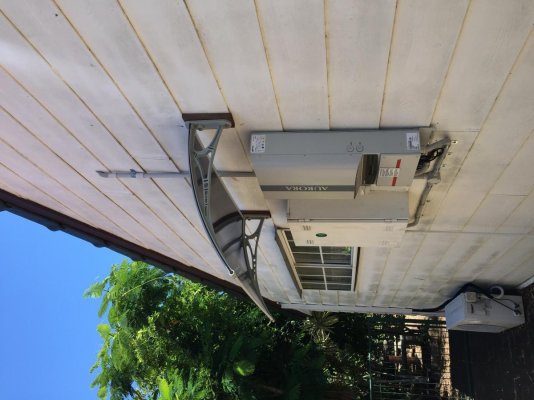This isn't a "boat" question but I'm confident one of you folks can point me in the right direction.
In the event of a power outage, our HOA does not allow a generator to be run between the hours of 10 pm and 7 am. Down here in Florida, that makes for an extremely uncomfortable night. In the event of a post-hurricane situation, where we may be without power for a few days, I'll have plenty of power during the daytime hours to power most of the house. I've installed a 10-circuit transfer switch in the house and have a 7,500w generator.
I am looking to get a window air conditioner that I can set up in the bedroom to sleep at night. Power consumption on an 8,000 BTU AC unit is about 700w/6-7 amps . Double that to 1,400w/12 amps to allow for more choices.
My question is assuming 12 amps, running 9 hours:
1. What type of batteries?
2. How many of them?
3. What size inverter?
4. How to charge them during the day off of the gas generator?
If anyone can point me in the right direction (think "Batteries For Dummies") I would greatly appreciate it.
Jim
In the event of a power outage, our HOA does not allow a generator to be run between the hours of 10 pm and 7 am. Down here in Florida, that makes for an extremely uncomfortable night. In the event of a post-hurricane situation, where we may be without power for a few days, I'll have plenty of power during the daytime hours to power most of the house. I've installed a 10-circuit transfer switch in the house and have a 7,500w generator.
I am looking to get a window air conditioner that I can set up in the bedroom to sleep at night. Power consumption on an 8,000 BTU AC unit is about 700w/6-7 amps . Double that to 1,400w/12 amps to allow for more choices.
My question is assuming 12 amps, running 9 hours:
1. What type of batteries?
2. How many of them?
3. What size inverter?
4. How to charge them during the day off of the gas generator?
If anyone can point me in the right direction (think "Batteries For Dummies") I would greatly appreciate it.
Jim
Last edited:







